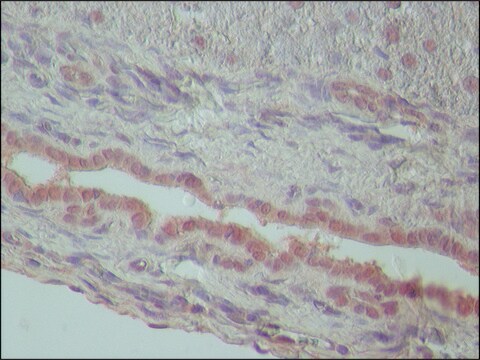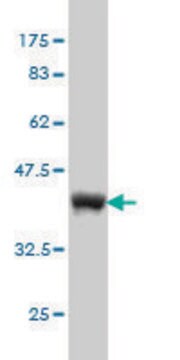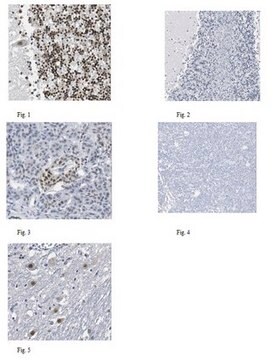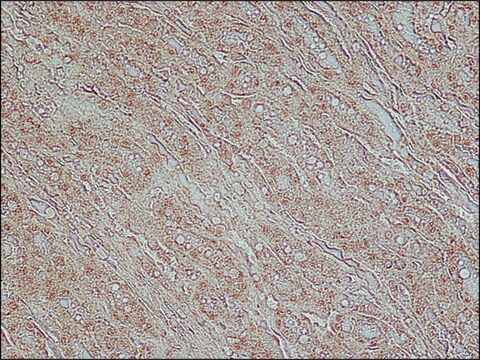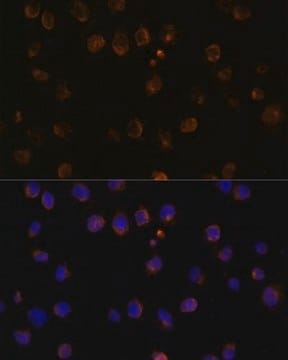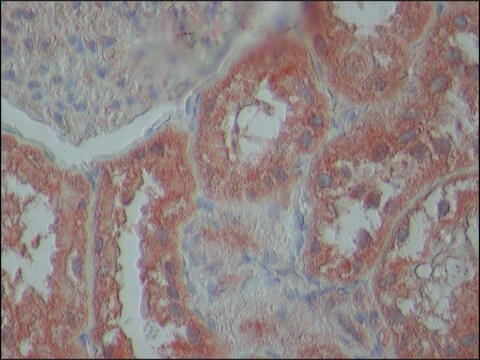SAB4200224
Anti-phospho-TDP-43 (pSer410) antibody produced in rabbit
~1.0 mg/mL, affinity isolated antibody
Synonym(s):
Anti-phospho-ALS10, Anti-phospho-TAR DNA binding protein 43, Anti-phospho-TARDBP, Anti-phospho-TARDP43
About This Item
Recommended Products
biological source
rabbit
conjugate
unconjugated
antibody form
affinity isolated antibody
antibody product type
primary antibodies
clone
polyclonal
form
buffered aqueous solution
mol wt
antigen ~43 kDa
species reactivity
mouse, human
concentration
~1.0 mg/mL
technique(s)
western blot: 1-2 μg/mL using HepG2 and NIH3T3 cell lysates
UniProt accession no.
shipped in
dry ice
storage temp.
−20°C
target post-translational modification
phosphorylation (pSer410)
Gene Information
human ... TARDBP(23435)
mouse ... Tardbp(230908)
General description
Immunogen
Application
Biochem/physiol Actions
Physical form
Disclaimer
Not finding the right product?
Try our Product Selector Tool.
Storage Class Code
10 - Combustible liquids
Flash Point(F)
Not applicable
Flash Point(C)
Not applicable
Choose from one of the most recent versions:
Certificates of Analysis (COA)
Don't see the Right Version?
If you require a particular version, you can look up a specific certificate by the Lot or Batch number.
Already Own This Product?
Find documentation for the products that you have recently purchased in the Document Library.
Our team of scientists has experience in all areas of research including Life Science, Material Science, Chemical Synthesis, Chromatography, Analytical and many others.
Contact Technical Service![Anti-phospho-TDP-43 [pSer409] antibody produced in rabbit ~1.0 mg/mL, affinity isolated antibody](/deepweb/assets/sigmaaldrich/product/images/407/478/bcd6d544-d187-42ed-8c1e-98bf709b4da7/640/bcd6d544-d187-42ed-8c1e-98bf709b4da7.jpg)

